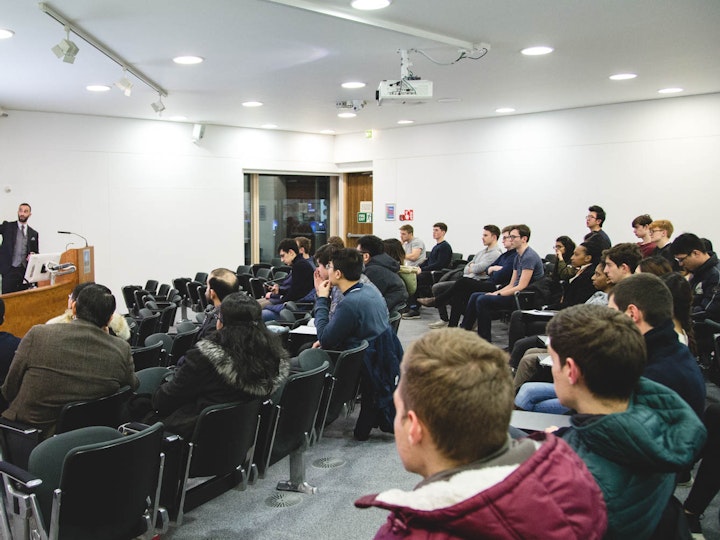Industry Insights: What Does it take to be a Trader?
This week we learned about Trading, and in particular what it takes to "make it" as a trader. As usual, Daniel Robertson has provided the review.


Andy Demi is a Reading alumni after graduating in 2003. After spells working at Deloitte and JP Morgan, he is now the head of the London Trading Group.
Andy provided a fascinating overview of trading as a career. Firstly he commented how it is often a misrepresented industry, characterised by films showing the more 'glamorous' side such as the Wolf of Wall Street! However the industry is a professional industry and one that is both competitive and pressurising to work in. If somebody doesn't enjoy high pressure competitive environments, Andy suggest roles such as analysts are require similar skills but with less pressure.
Good traders also have strong money management skills and risk controls - it's not just about earning returns! This is more important for independent traders who are reliant on themselves whereas in a firm there is a risk manager to monitor your performance. Other key skills for traders include quant skills (41% of traders have a quantitative education) and in the application stage around 70% of applicants can be filtered out based on numeracy tests.
In order to stand out, Andy believes applicants need to be unique, have an interest in financial markets and a proven track record (even if it is with a 'dummy' account), in addition to professional qualifications such as the IMC (which Andy felt was more relevant to trading than the better known CFA)
If Andy was starting out today in the industry, he would consider working for a hedge fund due to the flexibility to speculate in financial markets to generate a profit, however these are very competitive positions to secure. Therefore, if someone is struggling to get into the industry Andy suggests "prop houses" (propriety trading firms), where you pay for access to a desk with a Bloomberg terminal, fund your own account and the prop house matches your investment. These help develop your experience, though you do need to fund your initial capital - it might be six months before you start making money (or longer).
Finally - and importantly - Andy suggested that perhaps only 10-20% of people who are interested in trading can actually make it a successful career.

